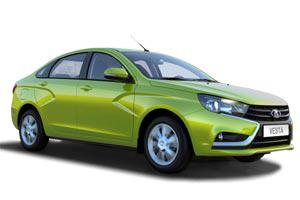Technical specifications
| Clear list | Hyundai Tucson (2018-2020) | Haval F7 |
| Totals | Hyundai Tucson (2018-2020) 2.0 MPI × | Haval F7 1.5 GDIT × |
| Mark | Hyundai | Haval |
| Model | Tucson (2018-2020) 2.0 MPI | F7 1.5 GDIT |
| Year | 2018-2020 | 2019 |
| Number of doors/seats | 5/5 | 5/5 |
| Body type | Wagon | Wagon |
| Unladen Weight | 1512 (1534) | 1670 |
| Gross Weight Limit | 2060 (2080) | 2180 |
| Top Speed, km/h | 186 (181) | 180 |
| Acceleration 0-100 kph | 10.6 (11) | - |
| Minimum turning radius, m | 5.3 | - |
| Cargo Volume, min/max, L | 488/1478 | 329/1254 |
| Dimensions specifications, mm | Hyundai Tucson (2018-2020) 2.0 MPI × | Haval F7 1.5 GDIT × |
| Length | 4480 | 4615 |
| Width | 1850 | 1845 |
| Height | 1655 | 1690 |
| Wheelbase | 2670 | 2725 |
| Front/rear Track | 1608/1620 | 1585/1585 |
| Ground clearance | 182 | 170 |
| Engine specifications | Hyundai Tucson (2018-2020) 2.0 MPI × | Haval F7 1.5 GDIT × |
| Type | petrol Injection | Gasoline Direct Injection, turbocharging |
| Displacement, cm3 | 1999 | 1499 |
| Compression ratio | 10.5 | 9.6 |
| Number and arrangement of cylinders | 4 cylinders, in-line | 4 cylinders, in-line |
| The diameter of the cylinder x stroke, mm | 86x86 | - |
| Number of valves | 16 | 16 |
| Power, hp/rpm | 150/6200 | 150/5500 |
| Max torque, Nm/RPM | 193/4000 | 280/1400-3000 |
| Transmission specifications | Hyundai Tucson (2018-2020) 2.0 MPI × | Haval F7 1.5 GDIT × |
| Gearbox | 6-speed manual / 6-speed automatic | 7-speed automatic DCT |
| Drive Type | Front wheel drive | Front/Four-wheel drive |
| Suspension specifications | Hyundai Tucson (2018-2020) 2.0 MPI × | Haval F7 1.5 GDIT × |
| Front | MacPherson strut | MacPherson strut |
| Rear | multi-link suspensions | multi-link suspensions |
| Tire Size | 225/60 R17, 225/55 R18 | 225/65 R17 |
| Disk | 5x114.3 ET46 d67.1
| 5x114.3 ET50 d67.1
|
| Brakes specifications | Hyundai Tucson (2018-2020) 2.0 MPI × | Haval F7 1.5 GDIT × |
| Front | Ventilated discs | Ventilated discs |
| Rear | Discs | Discs |
| Fuel consumption specifications, L/100 km | Hyundai Tucson (2018-2020) 2.0 MPI × | Haval F7 1.5 GDIT × |
| City | 10.7 (11) | 10.9 |
| Highway | 6.3 (6.1) | 7 |
| Combined | 7.9 (8) | 8.4 |
| Fuel | 95 | 95 |
| Tank, L | 62 | 56 |
| Clear list | Hyundai Tucson (2018-2020) | Haval F7 |














